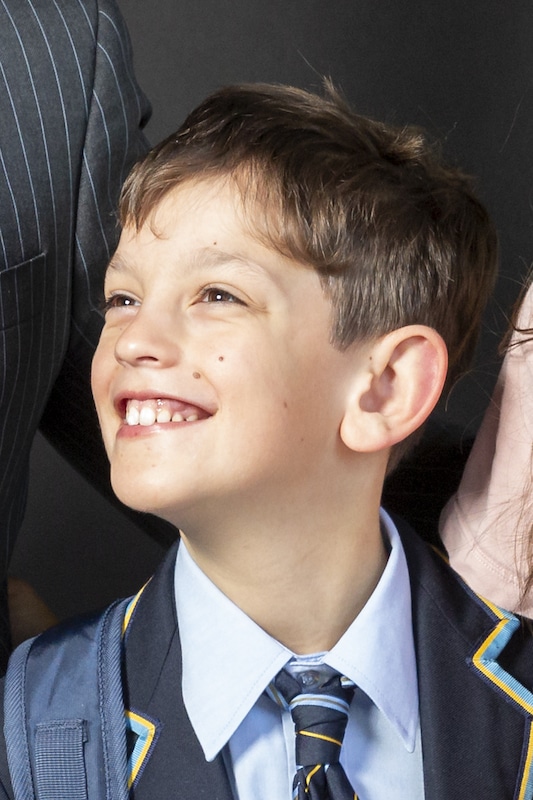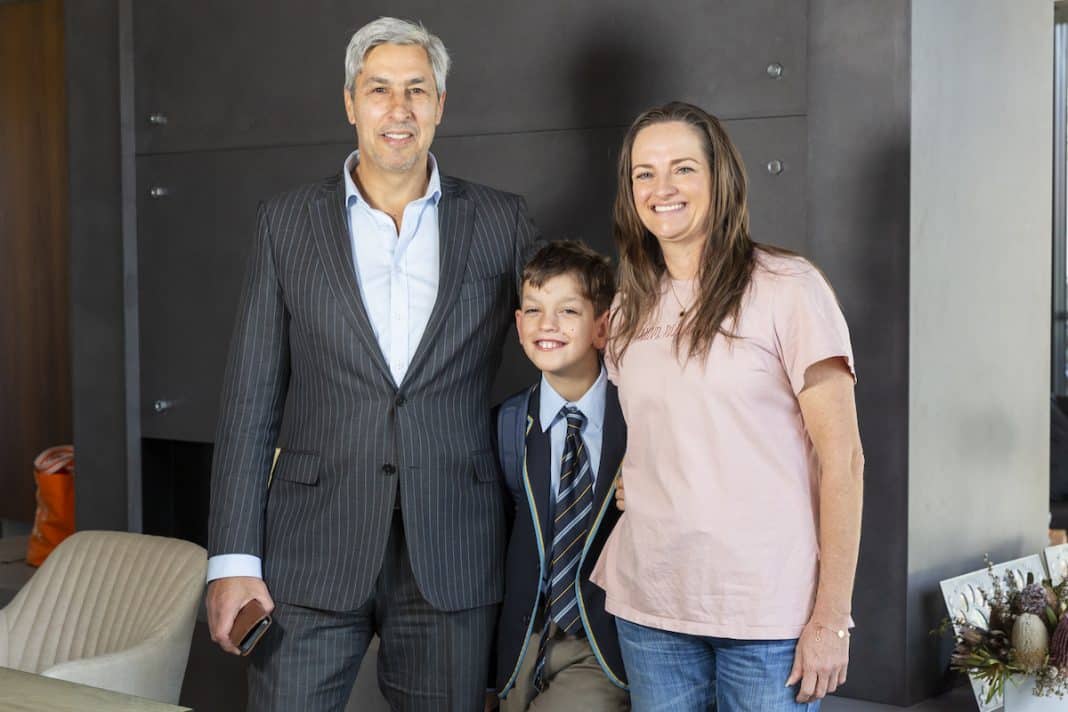Wife Sharon, husband Eugene, eldest son Ben, daughter Emily, and youngest son Gabe, of inner south Canberra, are proud to say they are not a perfectly normal family, thank you very much.
“Because my boys look perfectly normal, when their behaviours come out it looks like they are being naughty children,” said Sharon.
“I’ve had so many people tell me that my children are naughty, and I should do a better job reprimanding them.
“Well actually, they’ve got a cognitive problem.”
Fragile X syndrome is an under-recognised and frequently misdiagnosed genetic disorder caused by fragility in the X chromosome.
It is the leading cause of inherited developmental disability, affecting approximately one in 5,000 people.
While Fragile X affects both men and women, females usually have milder symptoms. While Sharon’s daughter, Emily, is neurotypical, both Ben and Gabe have been diagnosed as full mutations.
“With Benjamin, we thought he had autism,” said Sharon. “Then when Gabe was nearly two, I saw the same things and just thought, this is something more.”
The lifelong condition causes developmental disability and learning difficulties, speech delays, ADHD, anxiety, and sensory sensitivities.
Around 50 per cent of males with Fragile X are also diagnosed with autism.
“Gabe had a blood test done when he was two. Then we discovered that I was the carrier for Fragile X.

“As a carrier, my kids have a 25 per cent chance of inheriting the gene.”
Out of the seven members of Sharon’s family who have undergone testing, all have come back as carriers for Fragile X.
Physical characteristics of Fragile X might include large ears, long faces, prominent jaw and foreheads, flat feet, and, as seen in Sharon’s family tree, unusually long limbs.
“My niece was born 58 centimetres long, she’s all legs. Once you know what it is, you start seeing it places.”
Approximately one in 250 women are carriers of the Fragile X gene and often go through life unaware, due to their lack of cognitive issues.
Full mutations like Ben and Gabe, however, fly under the radar in an entirely different way.
“You can have 10,000 people with Fragile X and 10,000 different presentations,” Sharon said.
“You do get a lot of similarities between Fragile X and Down Syndrome. I tend to reference Down Syndrome when explaining Ben and Gabe’s condition, because people understand it. They understand it because they see it, whereas Fragile X isn’t obvious, they look like normal little boys. That’s the hardest part,” she said.
“You walk into a shopping centre, and you see them having a meltdown because it’s too noisy and you don’t understand. They’re on the ground screaming and ripping their clothes off and you’re going, ‘what?’
“Then you see me with two boys misbehaving and say, she hasn’t got her sh*t together. She’s not a good mother. She needs to discipline the children,” she said.
“And when I say to people, they’ve got special needs, there’s judgement there as well. The whole, it’s in your head, it’s in their head, thing.”
“It’s not, it’s actually genetic. Just because you can’t see it, doesn’t mean it’s not there.”
Sharon said she will never forget the first day she took Ben out in public, to a playground during a government-run park day.
“A mother told me my child was a bully and I should take him home and show him some manners. I went home in tears.
“How do you explain to someone that he doesn’t mean to push? He doesn’t know that someone touching him in line is okay behaviour. He thinks he’s been hit, so he turns around and whacks him.”
Years later, Sharon would have her parenting “light bulb moment” when confronting the fact that what works for other children, would not work for her boys.
“There’s another way to do everything, you just have to find it,” she said.
“It might surprise people that a family with Fragile X is very rewarding. I don’t think it’s a surprise to anyone to say it’s going to be hard, but it’s very rewarding in that they are very loving.
“I say to people all the time, the kids will live up to your expectations. Even if it does take longer to get there, it doesn’t mean that they can’t get there.
“It’s just a case of being creative and finding another way. And how many times do you hear people say, ‘think outside the square?’
“Well, that’s where they think. That’s where they’re at! A lot of brilliant minds have come from disability.”
Sharon said with a smile, “And they’re happy people. We need more Bens and Gabes in the world.
“Someone’s going to be very happy with these boys. It will just take a little extra time, a little extra patience, and a little extra kindness.”
For more information about Fragile X and the support available, visit Fragile X Association of Australia online at fragilex.org.au or call 1300 394 636.
Canberra Daily would love to hear from you about a story idea in the Canberra and surrounding region. Click here to submit a news tip.



